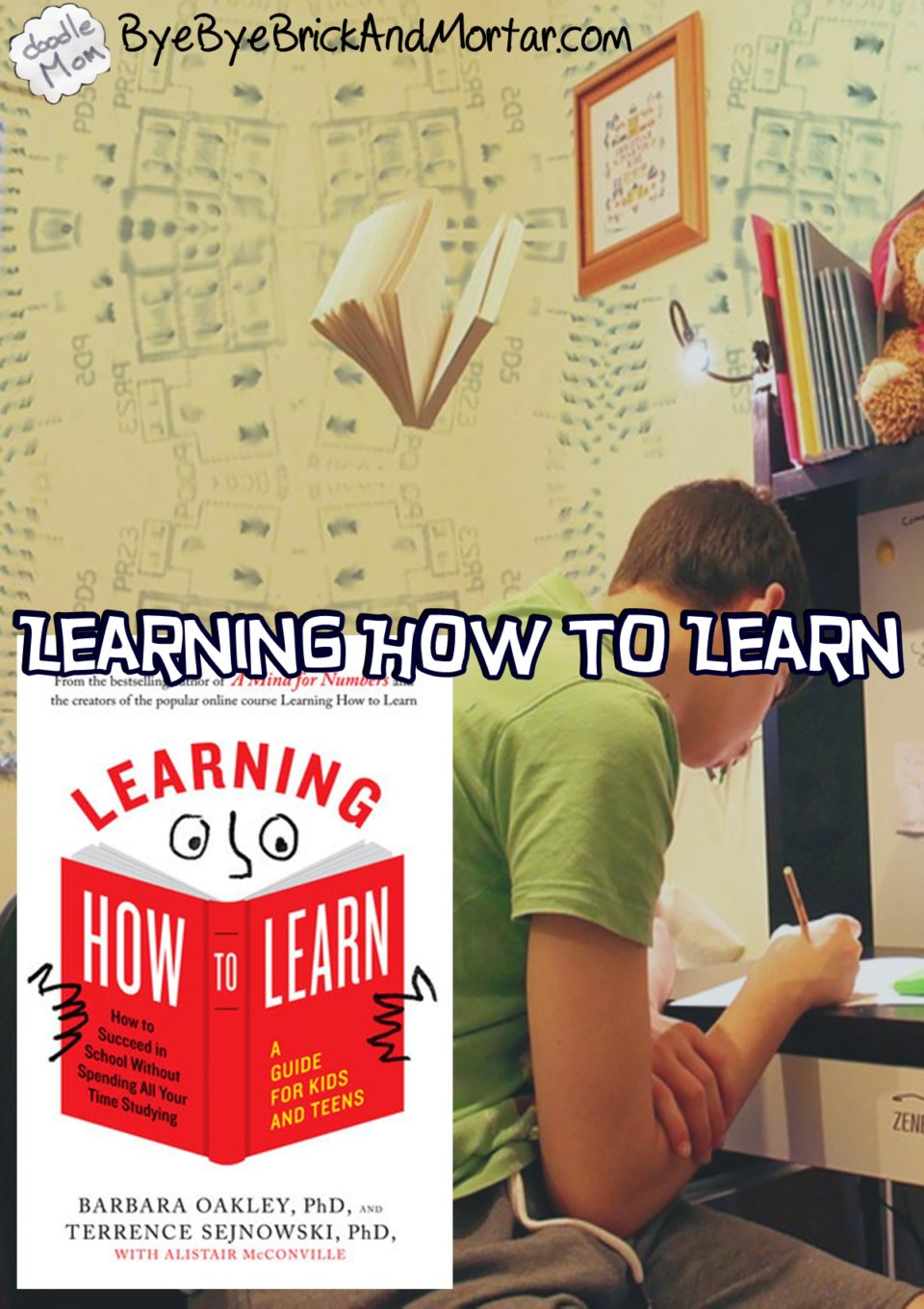Learning How To Learn {a review for Penguin Random House}
You may have taken biology and even maybe psychology lessons and think you understand your brain. But until you work your way through this absolutely engaging guide you will not know how to let your brain work for you. What are “brain chains”? How can you work with your brain to improve your reading comprehension? What do octopuses have to do with it? Why are video games good for you? These are all things you will figure out in Learning How To Learn as everyone, tween to adult, will discover how to learn efficiently without spending all your time studying.

Wish you could make learning less of a struggle?
How many of us spent our high school and even college years struggling to learn all the subjects we faced off against in class after class? Some subjects probably came easily to you. There are those others, though, that stumped you beyond belief.
If you are like me, a few subjects seemed insurmountable. For me it was grammar. I would study and study and read and read. And yet no matter how much I tried to cram those facts and ideas into my brain, they wouldn’t stay put.
I managed to push my way through and hold enough of those difficult facts in my head long enough to take a test or two. Sadly I found all that studying amounted to pretty much nothing in the long run.
When I went back to teach some of those subjects to my own kids in our homeschool, I had to relearn the material.
If I had known the amazing tools that Dr. Oakley and Dr. Sejnowski lay out in this fantastic book for teens (and adults), I certainly would not have had trouble learning in school.
Your teen can use this book at home to enhance other studies whether he learns in a homeschool or traditional school environment.
Do you have a child who has trouble remembering lessons or concepts? Learning How To Learn will free them from the struggle of learning and allow them to boldly step into the wonderful world of learning.
This fantastic guide will help your teens:
- Understand how your brain works to store memories
- Know the difference between
- Recognize why facts, being abstract, are harder to store in your memory
- Learn how big your own working memory is and practice brain-chaining to increase your learning capacity
- Find out why some kinds of video games are actually good for developing your ability to learn!
This book would be a great one to put in your teen’s backpack this fall as a back-to-school gift!
About the Author
Barbara Oakley is a professor of engineering at Oakland University in Rochester, Michigan, and Ramón y Cajal Distinguished Scholar of Global Digital Learning at McMaster University. Her research involves bioengineering with an emphasis on neuroscience and cognitive psychology. Dr. Oakley teaches two massive open online courses (MOOCs), “Learning How to Learn” (the world’s most popular course) and “Mindshift” (based on this book), alongside legendary neuroscientist Terrence Sejnowski. Dr. Oakley has received many awards for her teaching, including the American Society of Engineering Education’s Chester F. Carlson Award for technical innovation in education and the National Science Foundation New Century Scholar Award.
Book Summary From The Publisher
A Mind for Numbers and its wildly popular online companion course “Learning How to Learn” have empowered more than two million learners of all ages from around the world to master subjects that they once struggled with. Fans often wish they’d discovered these learning strategies earlier and ask how they can help their kids master these skills as well. Now in this new book for kids and teens, the authors reveal how to make the most of time spent studying.
We all have the tools to learn what might not seem to come naturally to us at first–the secret is to understand how the brain works so we can unlock its power. This book explains:
* Why sometimes letting your mind wander is an important part of the learning process
* How to avoid “rut think” in order to think outside the box
* Why having a poor memory can be a good thing
* The value of metaphors in developing understanding
* A simple, yet powerful, way to stop procrastinating
Filled with illustrations, application questions, and exercises, this book makes learning easy and fun.
Book Details
- Recommended Age Range: 13 years and up (adults will love it too!)
- 240 pages
- Publisher: Dial Books
- Published: August 2018
- ISBN: 978-0-14-313254-7
- List price: $16.00